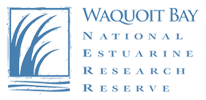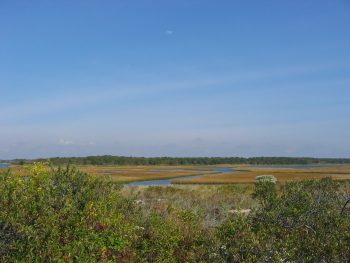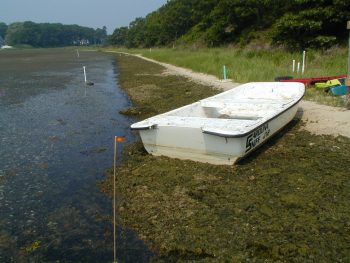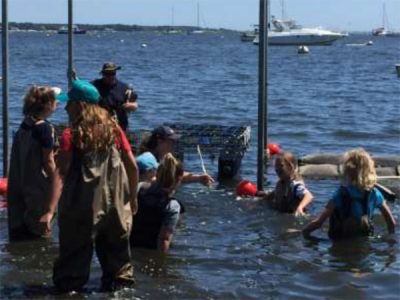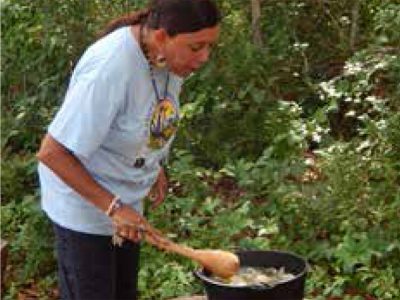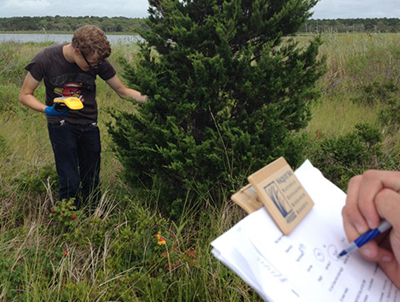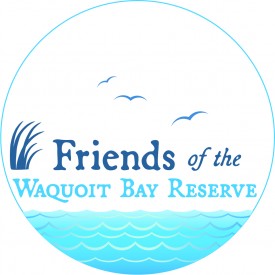Teacher Resources
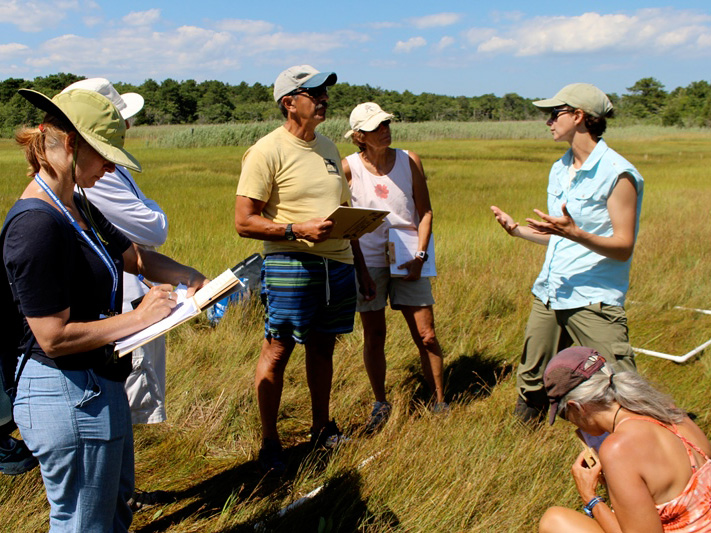
Teacher training programs are designed to increase learners’ knowledge of coastal ecology and the impacts of human actions on coastal areas, and to promote ecologically sustainable behaviors. Participants learn to access and utilize environmental data while preparing math and science lessons that are exciting for students, meet prescribed education standards, and teach communication and analytical skills using real world scenarios. The Reserve currently offers a variety of teacher training opportunities, including graduate credit courses and presentations at regional, state, and national conferences. The programs highlight topics such as renewable energy, climate change, coastal processes, eutrophication, and estuarine ecology. Contact the Reserve’s Education Coordinator for more information or to schedule one-to-one consulting on how to infuse estuarine education into the curriculum.
Upcoming Teacher Workshop
First Light Traditional Ecological Knowledge: A Workshop for Teachers
June 25-27, 2024 (9:00am-4:00pm), plus virtual callback November 7, 2024 (6:00pm-8:00pm)
Target Audience: Grades 2-12 Interdisciplinary, STREAMSS (Science, Technology, Reading, Engineering, Art, Math, and Social Studies)
Open to all school districts
Locations: Waquoit Bay National Estuarine Research Reserve, Old Indian Meeting House, Wampanoag Tribal Center, and the Mashpee Wampanoag Museum
What is Traditional Ecological Knowledge and why would you want to infuse it into your classroom? You can incorporate ancient indigenous understanding into your curriculum to address today’s issues of sustainability. Learn directly from Wampanoag cultural education specialists. Visit places important to local and regional history that are still important today.
30 PDPS- Attend all sessions, implement with your class and report back with reflection paper and virtual presentations in November.
Questions:
Kitty Hendricks – Mashpee Wampanoag Tribe, Cultural Education Specialist
José Lugo – Questions regarding registration, PDPs, and technology support
Joan Muller -Education Coordinator, Waquoit Bay National Estuarine Research Reserve
Curricula & Activities
Bringing Wetlands to Market

STEM Curriculum Linking Wetlands & Climate Change: This research examines the relationship between salt marshes, climate change, nitrogen pollution, and the economic value of salt marshes as carbon sinks. This module, is linked to the Next Generation Science Standards and introduces many different aspects of this project and provides teaching ideas and activities for sharing with teachers and students.
Sentinel Site Lesson Plan Booklet
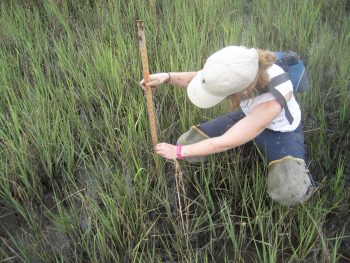
The Sentinel Site Lesson Plan is a grade 6-12 curriculum module that explores the Reserves’ role as sentinel sites for understanding impacts from climate change and human activities. Topics include habitat mapping, salt marsh vegetation and sampling techniques, sea level rise and coastal wetlands, and student sentinel sites at schools. Each lesson is linked to the Next Generation Science Standards.
Estuary Education Resources

This Suite of Estuary Education Resources brings estuarine science into the classroom through hands-on learning, experiments, fieldwork, and data explorations. The lessons, activities, animations and videos can be used independently or as a supplement to existing curricula and can be adapted to meet any grade level.
Virtual Parks as Classrooms
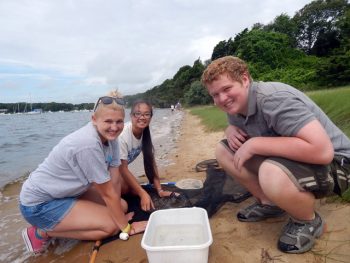
What’s happening to our coastal waters?: High School: Science and Engineering Practices, biology, chemistry
Is Sea Level Rise Affecting Our Massachusetts Salt Marshes?: High School Biology
Osprey Observations: Elementary Grades 3-5
Horseshoe Crabs: Shoreline Survivors
Elementary Grades 3-5
Ask Our Researchers
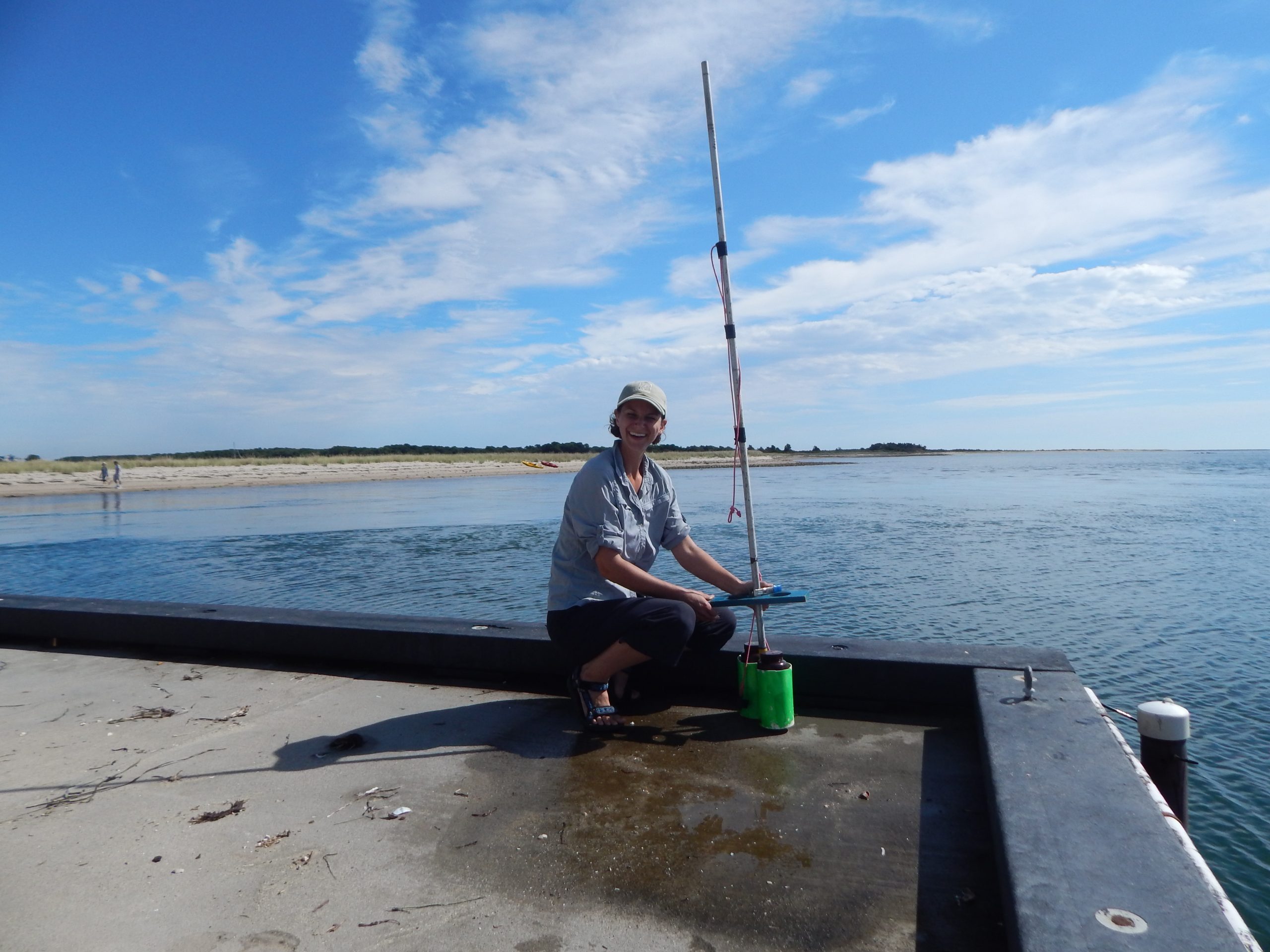
Interact with Waquoit Bay Scientists Six projects highlighting what scientists and researchers are learning about the Bay.
Film Shorts
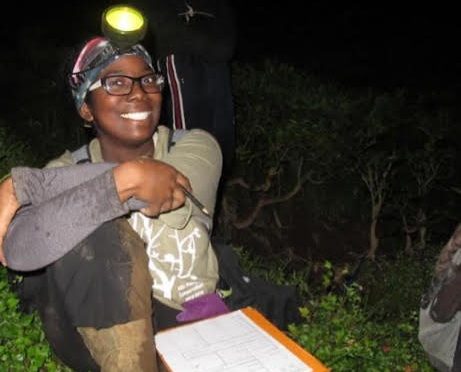
A Series of Short Films Featuring African-American and Caribbean STEM Professionals
In these short student produced video interviews, scientists and professionals discuss their work and the challenges they’ve faced in their careers as minority scientists.
Past Workshops
Teachers on the Estuary: Focus on Water Quality & Climate Change
Target Audience: Middle & High School Teachers
July 2023
Syllabus & Printable Flyer
Teachers on the Estuary: Wastewater in Watersheds
Target Audience: Teachers Grades 4-12
April 2023
Participants visited pond and estuary habitats, the Massachusetts Alternative Septic System Test Center, New Alchemy Institute (Falmouth), oyster aquaculture and permeable reactive barrier sites. Click here for full description and syllabus.
Virtual Workshops 2020
Teachers on the Estuary and Wampanoag Circle of Life
Multi-Session Webinar Series Designed for Elementary Teachers-Grades 3-5
September 1-3, 2020
This multi session course introduced elementary school teachers to flexible activities that can be used with their students during this period of uncertainty. Activities included both on-line and hands-on activities that students can do in classrooms and school yards, as well as their own backyards or homes.
Click here for full description.
Teachers on the Estuary (TOTE) – Investigating a Changing Environment
May, June & November 2020
(Middle/High School Teachers) This multi-session course introduced middle and high school teachers to activities that can be used with their students during this period of virtual learning. Activities focused on research conducted locally about sea level rise in salt marshes. Click here for full description.
Step Away From the Screen! Helping Students do Real Science in their own Backyards
April 2020
(K-12 Teachers) This webinar explored ways to get students outside using the practices of science while still conforming to social distancing guidelines. The activities can also be adapted for those students who are unable to get outside. Click here for a full description.
Here are two write ups from teachers who have already been practicing this with their students.
Backyard Environmental Study
Julia West, high school teacher who has been teaching students across the world in Oak Meadow an accredited K-12 distance learning school
Arrival of Spring Backyard Observation Activity
Lucinda Keith, second grade teacher from Bournedale Elementary
Engaging your Students’ Minds with Authentic Water Quality Monitoring Data
April 2020
(Middle/High School Teachers) This course showed how students can virtually check out water quality locally in Waquoit Bay on Cape Cod and across the nation. Teachers learned how students can easily make graphs online to analyze water quality changes over time or compare geographic areas from Alaska to Hawaii and Puerto Rico. Click here for full description.
Oysters: Place-based learning with local research (for teachers grades 3-12)
August 8 & November 12, 2019
Oysters serve as a vehicle to explore adaptations, life cycles, food webs, estuary ecology, human uses and impact, and science practices.
Teachers on the Estuary and the Wampanoag Circle of Life (grades 3-5)
June 25-27, 2019 and November 2, 2019
Teachers on the Estuary (TOTE) is a program of the National Estuarine Research Reserve System (NERRS) that offers field-based professional development for teachers on watershed and estuary topics at Research Reserves. In this program, Reserves use local research and habitats as a context for introducing teachers to coastal science and issues.
This course will introduce teachers of grades 3-5 to salt marsh and estuary ecology (specifically life cycles, food webs, and adaptations) through the lens of Cape Cod Wampanoag culture as well as research scientists and experienced coastal educators.
2017 Pollinating Your Curriculum: Teacher Professional Development for grades 3-5 Science, Technology, Reading, Engineering, Art, Math
Tuesday, Feb 28 5-8 pm, Wednesday, April 19, 8:30-5:30 pm, Monday, June 26, 1-5 pm at Reserve HQ
Create a pollinator garden at your school. 1 graduate credit or PDPs available. Register on events section of website.
Download flyer here: Pollinator 2017
Download syllabus here: Pollinating Your Curriculum_ Framingham- CCCCSTEM final (2)
2017 Teachers on the Estuary and the Wampanoag Circle of Life (grades 3-5)
This course will introduce teachers of grades 3-5 to salt marsh and estuary ecology (specifically life cycles, food webs, and adaptations) through the lens of Cape Cod Wampanoag culture as well as research scientists and experienced coastal educators.
2017 TOTE and the Wampnapoag Circle of Life syllabus here 2017_TOTE_Circle of Life syllabus 30 contact hours STEM PDP
2017 TOTE and the Wampnaog Circle of Life flyer here Elementary TOTE 2017
2016 Wastewater in Watersheds: The Perfect STEM Topic
Friday, Saturday, April 8, 9, 2016
(middle and high school biology, chemistry, engineering, science and math teachers: 14 PDPs and/or 1 graduate credit)
Syllabus- Wastewater–2016 syllabus- Framinghamv2
2016 Teachers on the Estuary and the Wampanoag Circle of Life syllabus (grades 3-5)
2016_TOTE_Circle of Life syllabus 24 contact hours PRDV 75324
2016 Teachers on the Estuary: Investigating a Changing Environment (middle and high school)
2016_TOTE_syllabus Investigating a Changing Environment

